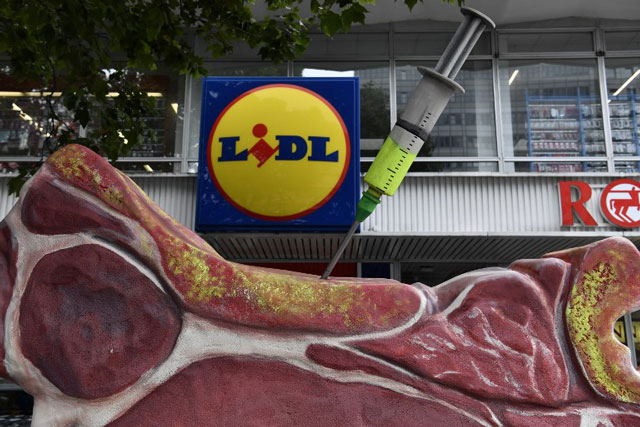
Geneva, Switzerland | AFP | The World Health Organization on Tuesday urged farmers to stop using antibiotics in healthy animals to help ensure the drugs remain effective in fighting life-threatening diseases in humans.
Overuse and misuse of antibiotics in animals and humans is contributing to the growing threat of “superbugs”, which become immune to existing drugs and allow minor injuries and common infections to become deadly.
“A lack of effective antibiotics is as serious a security threat as a sudden and deadly disease outbreak,” WHO chief Tedros Adhanom Ghebreyesus said in a statement launching the UN agency’s new recommendations.
“Strong, sustained action across all sectors is vital if we are to turn back the tide of antimicrobial resistance and keep the world safe,” he added.
– Millions could die –
Action is certainly needed: Researchers estimate that by 2050 some 50 million deaths globally will be attributable to antimicrobial resistance.
A world without functioning antibiotics would be like “going back to the dark ages,” warned Marc Sprenger, who heads WHO’s Antimicrobial Resistance Secretariat.
“People will just die because of (regular) infections,” he told reporters in a phone conference, warning that common procedures like hip replacements would also no longer be possible since the risk of infection would be too great.”
A review of nearly 200 separate studies, commissioned by the WHO and published in The Lancet Tuesday, indicated that cutting antibiotic use in food-producing animals could have a significant impact on the problem.
Restricting antibiotic use in livestock and on fish farms led to a clear reduction in antibiotic-resistant bacteria in those animals, the review showed.
A review of a far smaller number of studies meanwhile suggested “a similar association in the studied human populations, particularly those with direct exposure to food-producing animals,” it said.
Antibiotics have long been routinely used in healthy animals to promote growth and prevent diseases.
In some countries, around 80 percent of the total consumption of medically important antibiotics is used in the animal sector, according to WHO numbers.
This is believed to have contributed to a situation where “some types of bacteria that cause serious infections in humans have already developed resistance to most or all of the available treatments and there are very few promising options in the research pipeline,” WHO said.
The UN health agency is now calling for a complete halt to the use of antibiotics for growth promotion, and also for disease prevention, except in cases where disease has been detected in other animals in the same flock, herd or fish population.
And it said it “strongly recommends an overall reduction in the use of all classes of medically important antibiotics in food-producing animals.”
WHO categorises antibiotics currently used in humans and animals according to their importance to human medicine.
It said animals should be treated with the drug listed as “least important” to human health, and not with those classified as “highest priority” or “critically important”, which are often the last resort or only option for treating serious bacterial infections in humans.
WHO stressed that there were numerous options to using antibiotics for disease prevention in animals, including improving hygiene and better use of vaccination.
 The Independent Uganda: You get the Truth we Pay the Price
The Independent Uganda: You get the Truth we Pay the Price



